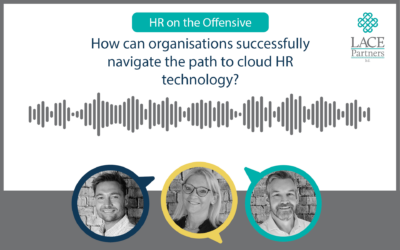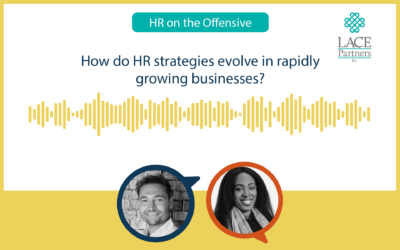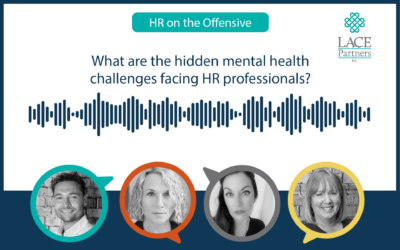With an increased focus on managing teams more effectively and using data to make strategic people decisions, having high-quality and accurate HR data has never been more important. Many organisations struggle to maintain accurate and reliable people data and resolving issues at the source can often be pushed to the bottom of the priority list, despite the many benefits it can bring. But improving and maintaining data quality is about more than just data cleansing – it involves establishing a framework that sets out what is acceptable, implementing processes to monitor and improve data quality, and fostering a culture of accountability across the organisation. In today’s blog post, we look at the common questions surrounding HR data quality and what steps to take to resolve the issues.
Who is impacted by poor people data?
What is important to note is that data quality spans cross-functionally. When you’re thinking about data, think holistically, because how you leverage your people data should be a key part of your overall people strategy, whether you are looking at your approach to people experience, or, for example, improving your data quality in your Talent function, as you look at something like internal mobility to help solve skills gaps in your organisation.
It’s not just the HR data team who will feel the pain of poor data quality – the impact can be felt across the HR function and the wider business. While the analysts may be the ones grappling with inaccurate reports and misguided insights, bad data fed through to the Finance teams will mean that headcount and budget data do not reconcile, leading to added time spent identifying the discrepancies. If incorrect data is reported to regulatory bodies, it can have serious financial consequences.
When data about individual employees is missing or inaccurate, their pay and benefits may be impacted (which has obvious implications for the Payroll team). Additionally, managers will be unable to resource their teams effectively without accurate time and contract data to draw upon.
HR business partners might be challenged on the incorrect information they are presenting, and they will be unable to make decisions based upon it – which can cause business leaders to question the value and abilities of the HR function, restricting the strategic role that HR plays in the organisation.
What are the common issues that drive the need for change?
If this all sounds familiar, then you’re not alone – the issues you’re experiencing are shared with many other organisations. Data quality problems can happen across all touchpoints within the data journey, from manual data entry when a new employee joins the business to downstream integrations, bringing in further invalidated data, all of which feed into a compromised set of reports.
Having a robust set of people data is particularly important when beginning a HRIS transformation or implementation journey. However, that’s not the only trigger for wanting to make a change. Data quality may also start to degrade post-implementation, particularly when moving to a self-service HR system that does not have the correct controls in place to maintain high-quality data.
Companies may be subject to audits by both internal and external bodies (perhaps even in reaction to a data incident) who identify problem areas in the data and hold them accountable to making improvements. Or, regulatory changes or new legislation affecting the industry may require focusing on specific people data sets in order to meet the requirements.
Changes to leadership or a new HR operating model with a more data-driven analytics-based focus may also shift the lens onto data quality to provide the best outputs to make effective decisions.
Why does good quality HR data matter?
Every organisation is different. Not everyone will be able to – or will want to – prioritise total data accuracy and completion across all data fields captured within their HR systems, particularly those that are not pay-impacting. But having a high level of accurate data across the key pieces of information that inform strategy and direction within your business can have a huge impact. Reports and insights developed from good quality data will drive effective and evidence-based decisions, meaning they are more likely to be the right choice and bring the most positive change. This will in turn lead to senior leaders developing trust in the insights being drawn from the people data, adding more weight and strength to the voice of HR in the leadership and overall direction of the business.
There are also tangible, operational benefits to improving your data quality. Putting robust processes in place that reduce the number of data errors and automate manual entry will cut the amount of time and resource required to correct errors, freeing up your teams to focus on other priorities.
Whose responsibility it is to improve HR data quality?
Everyone has a role to play in maintaining good people data. Employees are responsible for ensuring that their personal information is up-to-date, and that they inform the relevant teams or update the systems if their circumstances change. It is also the role of a line manager to lead from the top, updating team changes as they happen and communicating the importance of timely and correct data.
HR business partners and centres of excellence should be the gatekeepers of the people data, overseeing corrections and changes through workflows and ensuring that updated policies are correctly reflected in the systems and processes that they are responsible for.
How can LACE help?
LACE can support organisations in their data quality and cleanse journey, regardless of the underlying issues or the end goal. We offer a range of services designed to assess the status of the data, systems and processes so that we can best tailor our advice towards your needs and deliver a bespoke and customised set of recommendations that will guide you towards making improvements. Data quality impacts every part of your HR transformation journey and so thinking about it in a holistic manner is vital. We can work with you at any stage of your HR implementation journey to ensure you are set up for success and are starting from a high level of data quality, enabling you to also run ad-hoc data cleanse projects and assessments, offering guidance and frameworks designed to support you long term.






